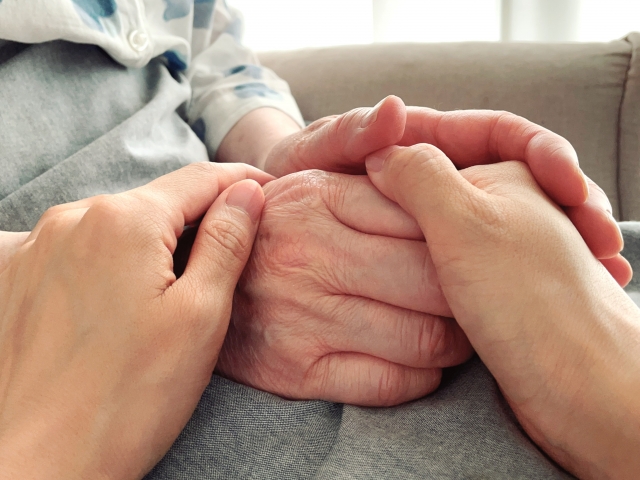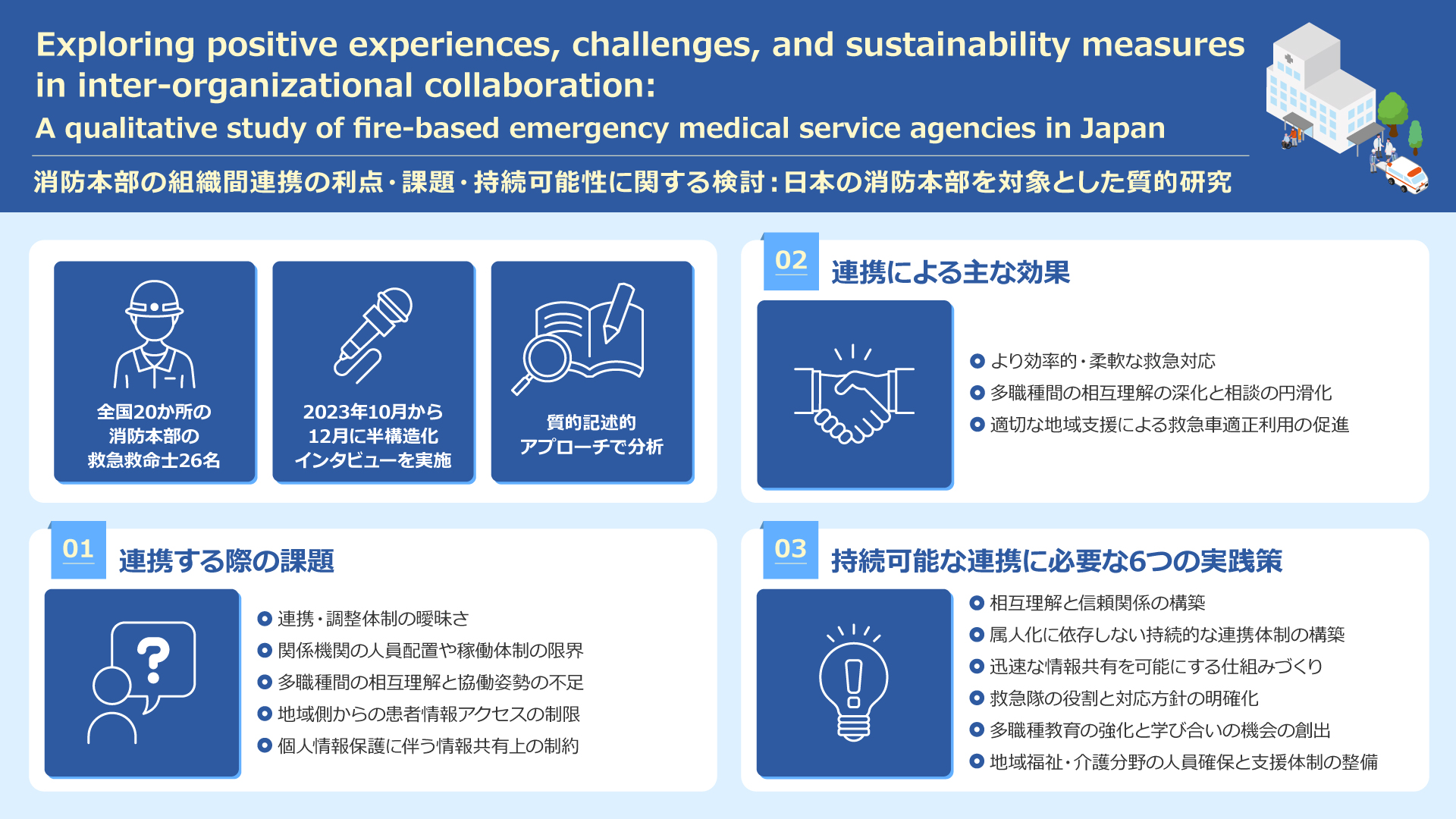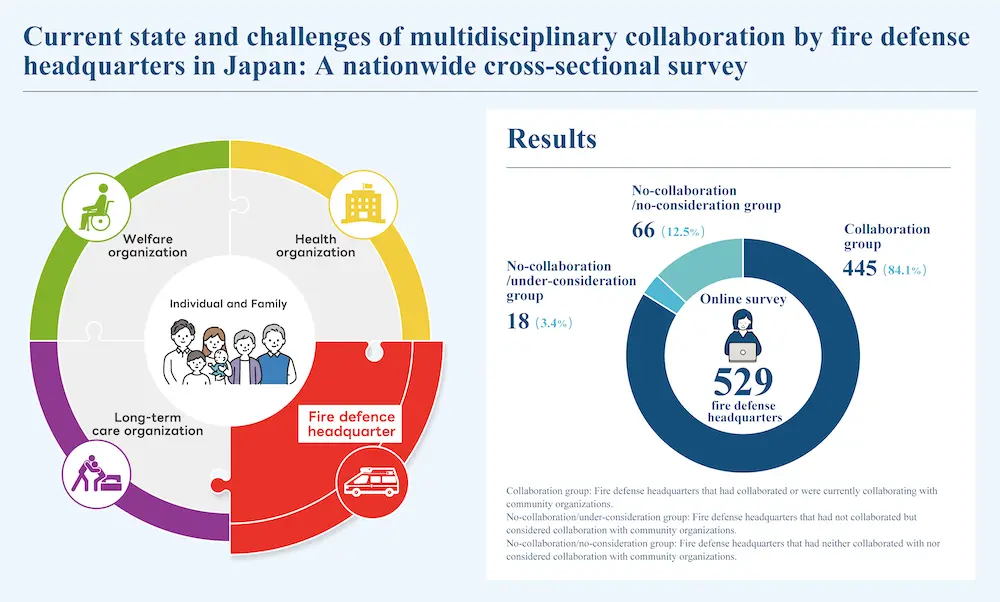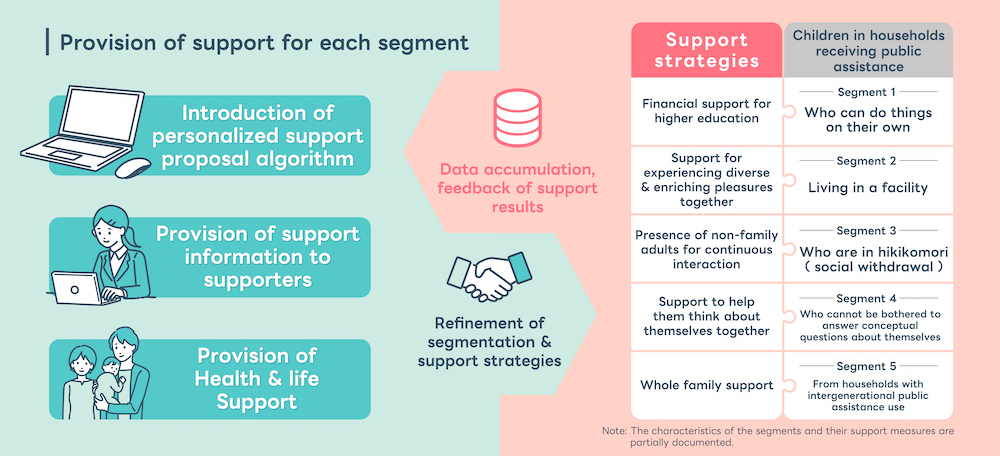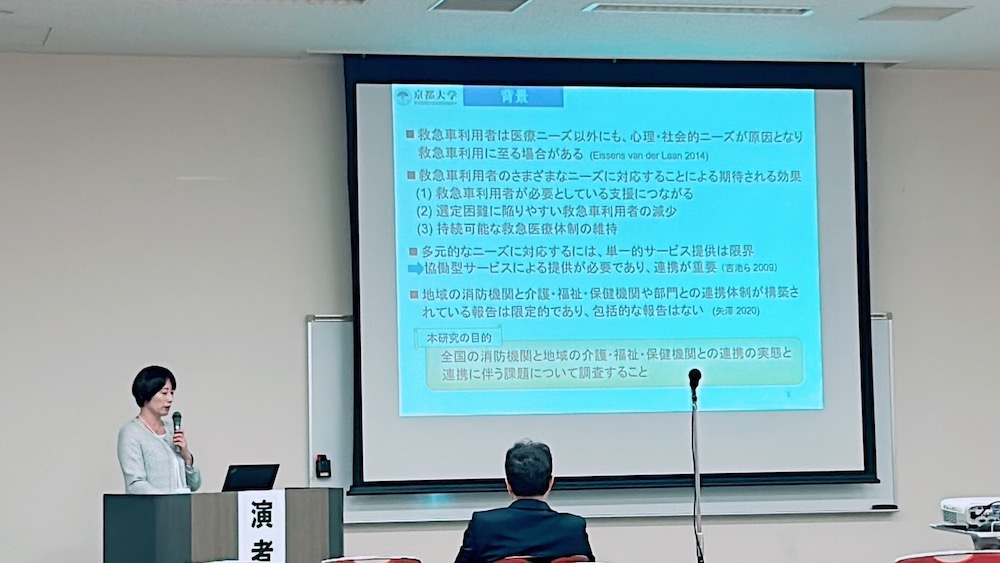Development of a new method for tailor-made health supportfor public assistance recipients
Besides financial support, public assistance recipients have diverse and complex health and social support needs. The segmentation approach can be used to provide tailored support interventions for a targeted group of individuals. The research group was led by Associate Professor Naoki Kondo (during the research, currently a Professor at the Graduate School of Medicine and School of Public Health, Kyoto University) and Keiko Ueno, a PhD student at the Graduate School of Medicine, The University of Tokyo (during the research, currently Assistant Professor at the Graduate School of Medicine and School of Public Health, Kyoto University), employed market segmentation and a soft clustering technique to characterize different segments within the population of older public assistance recipients in Japan. They examined the similarities between the extracted segments and public assistance recipients in practice by interviewing caseworkers at welfare offices. Consequently, five distinct segments of older recipients were identified for each sex. Caseworkers perceived several segments as those in practice. Moreover, we extracted segments with characteristics that caseworkers had not previously been aware of. Accordingly, they have been developing a tailor-made health support system that presents support plans for each segment. The results of this research were published online in the International Journal for Equity in Health on August 3, 2023.
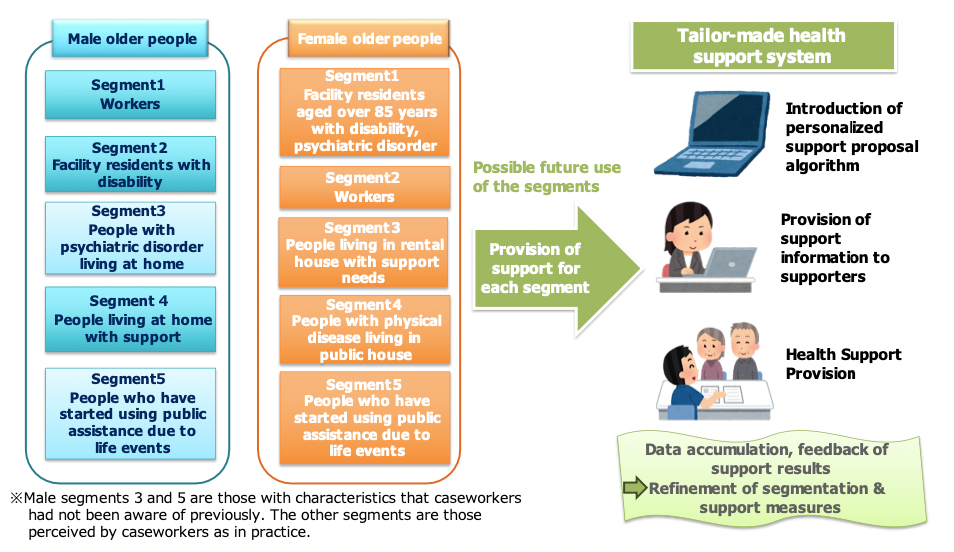
Summary of the article (English)
Discovering daily life needs of older public assistance recipient subgroups
Health disparities have become a major social issue in Japan. To reduce health disparities, it is necessary to shift from individual-level to societal-level interventions. Since 2021, health management support programs for public assistance recipients have been mandated in welfare offices. Therefore, the present study focused on older public assistance recipients who particularly need health and daily life support, and aimed to understand the daily life needs of subgroups of older public assistance recipients. In 2021, we conducted interviews with four caseworkers from the welfare offices in two municipalities. The results of our previous quantitative study, which identified five subgroups of older public assistance recipients by sex, were presented to caseworkers. They were asked about their daily life needs in each subgroup. The interview results revealed the following five daily life needs among the subgroups of older public assistance recipients: (1) housing, (2) financial,(3) welfare service utilization, (4) medical, and (5) no specific daily life needs. These findings indicate that appropriate support interventions are necessary for each subgroup of older public assistance recipients. Future studies are warranted to conduct interviews with professionals from other fields (such as public health nurses and social workers) to further understand the daily life needs of the subgroups of older public assistance recipients.
These findings were published online in Global Health & Medicine on July 14, 2024.
I participated as a chair in the Symposium at the 83rd Annual Meeting of Japanese Society of Public Health.
I participated as a chair in Symposium 32, titled "Supporting the Health and Lives of Households Receiving Public Assistance: Evidence, Practical Examples, and Future Prospects," at the 83rd Annual Meeting of Japanese Society of Public Health held in Sapporo from October 29 to 31, 2024. I was deeply impressed by the presentations from the speakers. Additionally, I learned a great deal about chairing from my co-chair, Professor Masashige Saito of Japan Welfare University.
In this symposium, we aim to share the current state of public assistance recipients' health. Dr. Haruna Kawauchi (Osaka Medical and Pharmaceutical University) will first report on a review of existing evidence on the health of public assistance recipients. Next, Ms. Noriko Kuboki (Yokohama Soei University) and Ms. Shoko Takemoto (Toyonaka City Welfare Office) will share examples of health support programs for children and caregivers in public assistance households, as well as pioneering cases of the Health Management Support Program, from a public health nurse’s perspective. Finally, Dr. Daisuke Nishioka (Osaka Medical and Pharmaceutical University) will summarize the possibilities and challenges of health and life support for public assistance recipients, drawing on the outcomes and discussions from the Ministry of Health, Labour, and Welfare’s research project for fiscal year 2024 on developing effective health support methods for public assistance recipients. Based on these presentations, a panel discussion will be held to discuss and conclude with future perspectives on the Health Management Support Program.
The objectives of this symposium are to understand and discuss effective implementation of health and life support for households receiving public assistance, clarify the necessary roles of relevant organizations, and make policy recommendations that contribute to program updates. We also aim to foster a network among those involved in the Health Management Support Program nationwide. We warmly invite the participation of all professionals involved in health and life support for public assistance recipients, including public health nurses, nutritionists, caseworkers, and others engaged in these initiatives at welfare offices.
